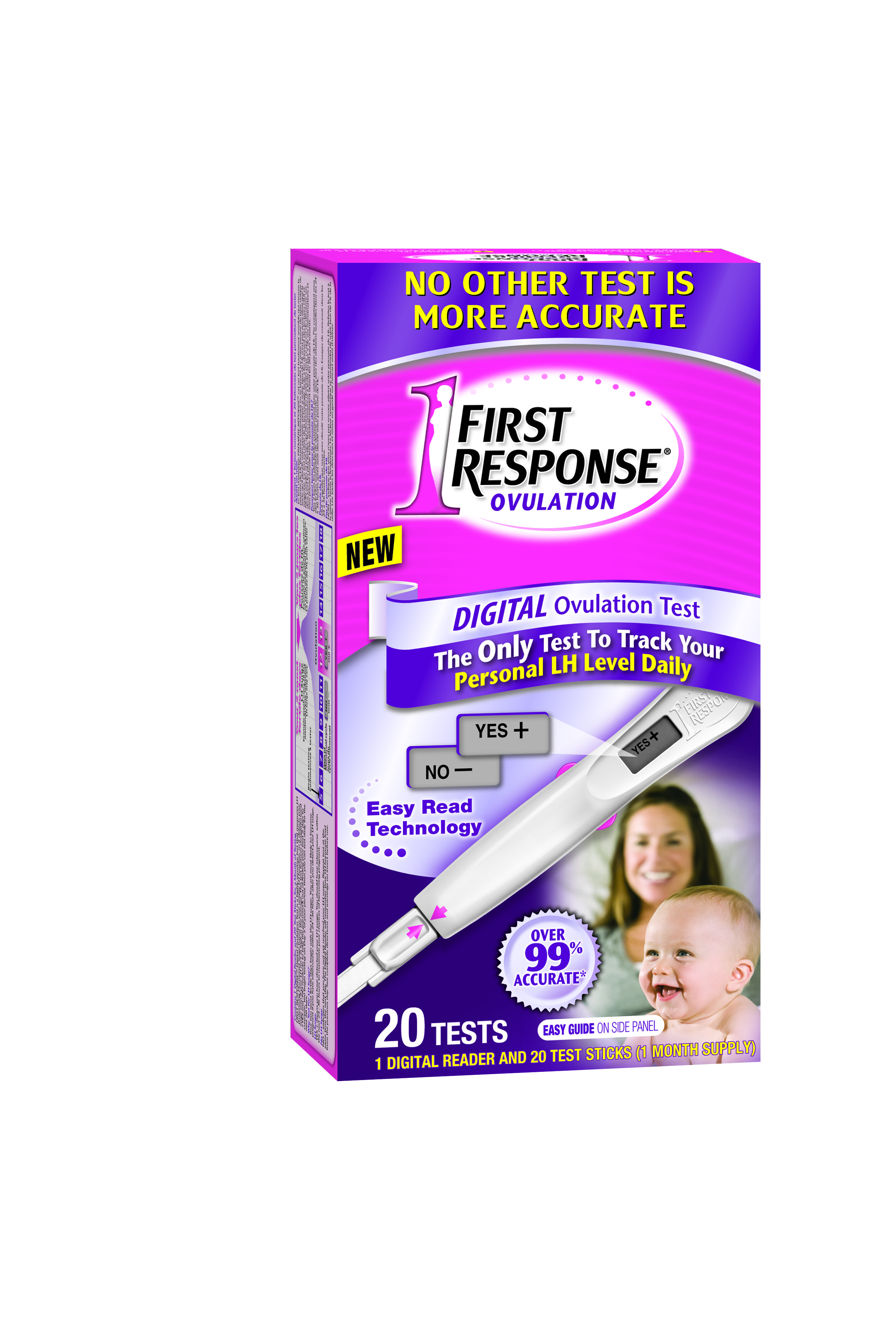I know how fortunate my husband and I were to be able to conceive all of our children almost immediately after we started trying. Unfortunately, the same is not true for the majority of the population. A few people we know also had some issues conceiving. For some it took years, for some it took the use of IVF, others are still trying. Infertility is not an easy topic of talk about but an important one that should not be ignored. I can’t really do it much justice except to say that I want to support those that are trying to conceive but can’t.
Below, FIRST RESPONSE helps debunk the myths around conception, fertility and timing.
For all couples trying to conceive, there are some general guidelines to consider[1]:
- 30% get pregnant within the first cycle (about one month)
- 59% get pregnant within three cycles (about three months)
- 80% get pregnant within six cycles (about six months)
- 85% get pregnant within 12 cycles (about one year)
- 91% get pregnant within 36 cycles (about three years)
- 93-95% get pregnant within 48 cycles (about four years)

If looking to start (or grow) a family sooner, rather than later, here are some important steps to take to make getting pregnant as seamless as possible.
1) Start with a pre-pregnancy trip to a trusted doctor. A credible doctor will be able to discuss the most important topics when it comes to conceiving, like menstrual cycle timing and regularity, parents’ medical history, exercise, eating habits and more.
2) Lead a healthy and happy lifestyle. Simple changes like getting more sleep, and spending extra time with friends and family can do wonders for the body. Reducing stress is another important element as stress can cause irregular ovulation and can disrupt a woman’s menstrual cycle—affecting overall fertility[2].
3) Understand your peak fertile days. If a woman knows her most fertile days, it can help speed up the pregnancy and planning process. The FIRST RESPONSE™ Digital Ovulation Predictor Test is over 99% accurate for detecting a woman’s personal luteinizing hormone (LH) surge, giving an easy and accurate way to determine the two days a month when each woman is most likely to ovulate[3]. If intercourse happens within the 24-36 hour window, this will maximize her chances of getting pregnant.
By helping to determine a woman’s unique peak fertility days, and understanding her body, FIRST RESPONSE can help speed up the pregnancy process.
[[1]] http://www.babycenter.com/how-long-does-it-take-to-get-pregnant
[2] http://www.firstresponse.com/pregnancy-preparation
[3] http://www.firstresponse.com/pregnancy-preparation-step3